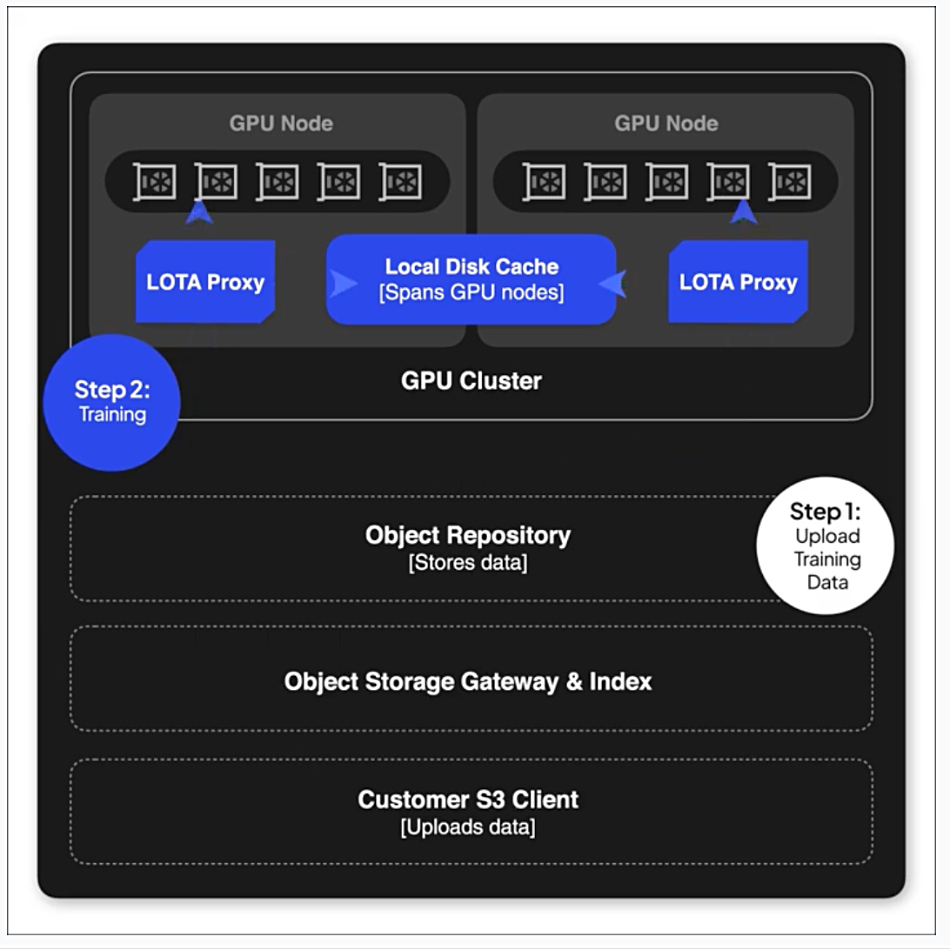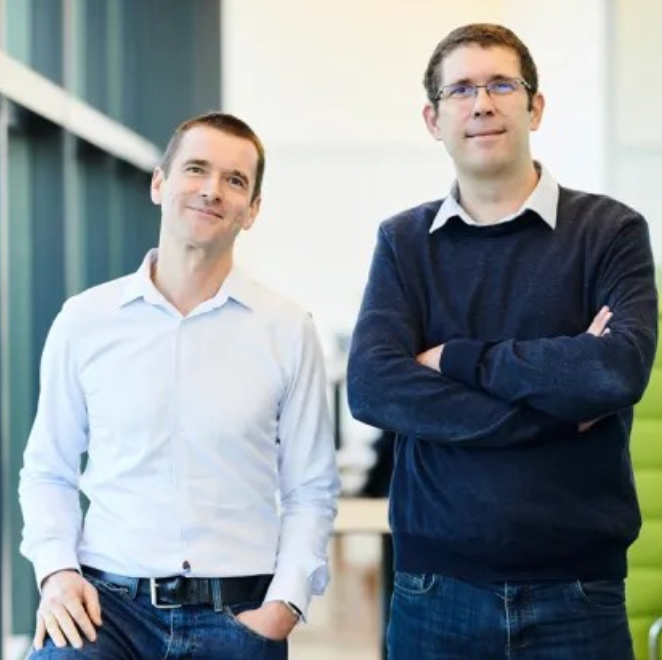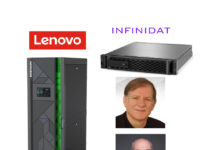Data protector Acronis, with the support of MSP Littlefish, announced its latest #TeamUp Partner, the UK’s Brentford FC. The Premier League football club will use Acronis Cyber Protect Cloud including Advanced Backup, Advanced Management, and Advanced Security, to safeguard its systems and data. Service providers are invited to join the Acronis #TeamUp Program to deliver Acronis Cyber Protection solutions to world-class and global professional sports teams.
…
Alibaba, Apple, and Synopsys have joined the UAL (Ultra Accelerator Link) Consortium as board members. Since incorporating in October 2024, the organization has grown to more than 65 member companies. UALink is positioned as an open alternative to Nvidia’s proprietary NVLink for connecting devices to GPU and other AI accelerators. Anticipated for release during the first quarter of 2025, the UALink 1.0 specification will enable up to 200 Gbps per lane scale-up connections for up to 1,024 accelerators within an AI pod.
…
Atombeam Technologies has developed a compression technology in its Neurpac offering, called codewords, which reduces bandwidth, compute power, and energy during data network transmission. It uses AI/ML to detect 64, 128, or 200-bit-long patterns and replaces them with so-called codewords 3 to 10 bits long. These are stored in a codebook at both ends of a network link. Sending a message involves a source encoder module scanning the data and, using the codebook, replacing recognized bit patterns with codewords. These are sent across the network and decoded at the destination end using a decoder module. This can cut the amount of data sent across the link by up to 75 percent. Get a Neurpac data sheet here.

There seem to be similarities between Atombeam Technologies‘ codewords and Formulus Black/Symbolic IO’s bit markers. LinkedIn shows Atombeam founder Asghar Riahi was a Master Technologist at HP from 1999 to 2012. SymbolicIO founder Brian Ignomirello was StorageWorks CTO at HP from 2007 to2011. The two overlapped at HP for four years.
…
Cohesity appointed the founder and CEO of NightDragon, and former CEO of FireEye and McAfee, Dave DeWalt, and Lieut. Gen. (ret) H.R. McMaster to its Security Advisory Council, where DeWalt will serve as chair. DeWalt said: “With over 12,000 customers worldwide, Cohesity is already playing a key role in safeguarding our nation by protecting valuable business data and helping enterprises recover faster than anyone else in the industry. Joining this Security Advisory Council to strengthen these efforts and ensure our nation remains resilient in the face of unprecedented threats is a no-brainer.”
The existing council members include:
- Kevin Mandia: Current Cohesity board member, founder of Mandiant at Google Cloud, and co-founder and partner at Ballistic Ventures.
- Alex Stamos: Director of the Stanford Internet Observatory, a Partner in the Krebs Stamos Group, and former CSO at Facebook and Yahoo
- Jason Chan: Former VP of Information Security at Netflix.
- Marianne Bailey: Currently leads Guidehouse’s Advanced Solutions Cybersecurity practice and is a former senior cybersecurity executive at the NSA.
- Laura Mather: Current COO and a member of the Group Executive Committee at Societe Generale.
- Sheila Jordan: Current chief digital technology officer at Honeywell, and former CIO at Symantec.
- Kelly Bissell: Corporate VP at Microsoft and former global MD at Accenture Security.
Sanjay Poonen, Cohesity CEO and president, said: “Our top priority is to help our customers across the globe build cyber resilience and keep their data secure and protected. With our combination with Veritas’ Data Protection business in December, we’re doing that on a much larger global scale than ever.”
…
Cloud file services and collaboration supplier Egnyte said it had a wonderful 2024, rolling out 300 new product features throughout the year to boost user productivity, streamline workflows, and strengthen data security. It secured five new patents, taking its total past 50, and launched a generative AI-powered assistant, Egnyte Copilot. This integrates with its web, mobile, and desktop applications, and allows users to summarize documents, create knowledge bases, organize, and query information across thousands of files, transcribe multimedia, and generate custom prompts, guiding AI responses with context-specific instructions.
…

Log data streaming data lake supplier Hydrolix has appointed Todd Persen as CTO. He was previously CEO and co-founder of Era Software, creator of EraSearch, a cloud-native storage product for petabyte-scale log management workloads. Era Software was acquired by ServiceNow in 2022.
It said its revenue grew 8x from Q4 2023 to Q4 2024, with partnerships with Akamai and AWS contributing significantly. Its customer roster rose from 39 to 389. Hydrolix also expanded its team from 50 to 135, and plans to add another 100 team members this year, with an emphasis on building a Portland-based customer support team.
Marty Kagan, co-founder and CEO at Hydrolix, said: “Our product is now in hundreds of production deployments supporting some very large customers running critical workloads, and the results have encouraged us that the time is right to press the accelerator and push product innovation even further.”
…
Public cloud GPU farm service supplier CoreWeave is partnering with IBM and making a cluster of Nvidia GB200 NVL72 systems with all-flash Storage Scale storage available to IBM for training its Granite LLMs, as well as for general customer use. It says this cluster delivers up to 1.4 exaFLOPS of AI compute power per rack, enabling up to 4x faster training and 30x faster real-time inference of trillion-parameter models compared with previous-generation GPUs. The architecture includes 13.5 TB of high-bandwidth, NVLink-connected GPU memory per rack, optimized for massive datasets, and liquid cooling that reduces energy consumption and costs.
An IBM spokesperson told us: “The CoreWeave supercomputer is one component of a larger AI technology stack for training Granite models. As a hybrid cloud and ecosystem-focused company, IBM gets GPU capacity on prem, via the IBM cloud and in other clouds – with CoreWeave being a great addition to this ecosystem.”
CoreWeave is also introducing new GPU instance types, including Nvidia GH200 Grace Hopper Superchip and Nvidia L40 and L40S GPUs, that are now generally available. It’s previewing AI Object Storage, “a next-generation cloud storage solution purpose-built for accelerated computing workloads.”
This uses “proprietary Local Object Transport Accelerator (LOTA) technology to deliver industry-leading performance. By caching frequently accessed objects on GPU nodes’ local disks and bypassing traditional storage gateways, LOTA enables throughput of up to 2 GBps per GPU—10x faster than previous storage solutions. With enterprise-grade features like S3 compatibility, encryption, role-based access control, and durability, CoreWeave AI Object Storage combines exceptional speed and scalability with the security and reliability required for cutting-edge AI workflows.” We doubt CoreWeave wrote its own object storage software and it could be partnering with IBM, Pure Storage, or VAST Data for this.

LOTA is engineered to scale to trillions of objects and exabytes of data, providing 99.9 percent uptime and nine nines of durability. It seems similar to Hammerspace’s Tier 0 technology with its use of “GPU nodes’ local disks” – we think CoreWeave means SSDs rather than literal disk drives.
…
Malware penetration detector Index Engines said it grew strongly in 2024 with 112 percent growth year-over-year in the banking industry driven by demand for the CyberSense product. It experienced 35 percent growth year-over-year in healthcare, 25 percent in financial services, and 15 percent in IT services. There was a 58 percent increase in unique reseller sales in 2024. In Q3, resellers generated a 73 percent growth in new customers and 78 percent growth in revenue over the same period in 2023. There was a 42 percent growth in December revenue compared to December 2023. CyberSense is now deployed in over 70 countries and supports more than 50 industries.
…
Microsoft has replaced its Azure Stack HCI offering with Azure Local, competing with HCI systems from Broadcom’s VMware, Nutanix, and Scale Computing. A blog explains: “Azure Local is cloud-connected infrastructure that can be deployed at your physical locations and under your operational control. With Azure Local, you can operate and scale distributed infrastructure using Azure portal and APIs. You can run the foundational Azure compute, networking, storage, and application services locally. You can choose hardware from your preferred vendor, providing flexibility to meet your requirements and budget. And by extending cloud security to your distributed locations, you can better safeguard apps and data, and protect against advanced threats.” It’s managed from the cloud through Azure Arc.
The blog says: “With Azure Local, you can treat physical machines like cloud resources by using Azure portal and APIs to perform lifecycle operations like deployment, configuration, updates, and monitoring. This removes the need for separate local management tools and enables a more unified approach across cloud resources and distributed locations, shifting responsibility from on-site personnel to central IT and helping reduce cost.”
…
NVIDIA has never admitted it has bought Nebulon. But the HPE Pathfinder investment organization has confirmed that Services Processing Unit startup Nebulon has been bought by NVIDIA. A statement on its website is headlined “Nebulon (Acquired by NVIDIA).” HPE says “Hewlett Packard Pathfinder identifies and invests in category-leading startup companies, creates solutions combining portfolio companies’ technologies with Hewlett Packard Enterprise products, and architects joint go-to-market programs.”
…
Data lakehouse business Onehouse announced GA of the Onehouse Compute Runtime (OCR), claimed to be the industry’s only compute runtime that optimizes data workloads across all leading cloud data platforms and query engines, including Amazon Redshift, Databricks, Google BigQuery and Snowflake. It says that, while most vendors focus on optimizing compute for their specific architecture and ecosystem, the unique universal data lakehouse architecture of Onehouse makes its industry leading compute optimizations available across clouds. Customers using OCR see 2x to 30x query performance improvements across open data lakehouse table formats and 20 to 80 percent cloud infrastructure cost reductions.
…
The PCI-SIG has announced the PCI Express 7.0 spec, Revision 0.7 is available for member review. This spec version incorporates all the feedback it received from members on version 0.5 released in April 2024 and brings it one step closer to the full release of the PCIe 7.0 specification, targeted for 2025. The PCIe 7.0 spec includes the following feature goals:
- Doubling the bandwidth of PCIe 6.0 specification (64 GT/s) to 128 GT/s raw bit rate and up to 512 GB/s bi-directionally via x16 configuration
- Utilizing PAM4 (Pulse Amplitude Modulation with 4 levels) signaling
- Focusing on the channel parameters and reach
- Continuing to deliver low-latency and high-reliability targets
- Improving power efficiency
- Maintaining backwards compatibility with all previous generations of PCIe technology
…
Toshiba has launched new Canvio Flex and Gaming 2.5-inch portable disk drives. They connect to hosts with USB 3.2 Gen 1 and have capacities of 1 TB, 2 TB, and 4 TB. The drives are shipped with both USB Type-C and Type-A cables and can connect to Android and iOS smartphones, tablets, Macs, Windows PCs, and other compatible devices, without the need for reformatting. The Canvio Gaming has a dark gray metallic finish and blue LED, plus an always-on mode for faster game resumption. Both drives will be available in Q1 2025. Get more information on the Canvio Flex here and the Canvio Gaming drive here.

…
Belgium’s Imec (Interuniversity Microelectronics Centre) is spinning out Vertical Compute with a $20.5 million seed round for founders CEO Sylvain Dubois (ex-Google) and CTO Sebastien Couet (ex-Imec). Dubois provides the business smarts with Couet the technology inventor. Vertical Compute says AI processing (training and inference) is being held back by SRAM and DRAM capacity limitations, creating a memory wall. It is developing patented chiplet technology using MRAM with so-called vertical lanes, which feature a high aspect ratio and are layered into computation units with reduced data movement distances. These deliver up to 100x performance gains in LLM execution by enabling direct, local access to data, and up to 80 percent energy savings through reduced data movement. This is for deployment in datacenter and edge computing devices, including phones, laptops, and cars.









